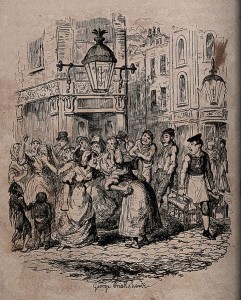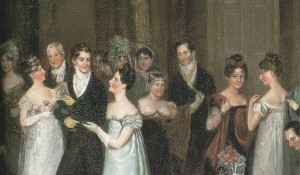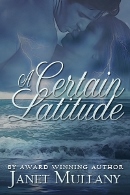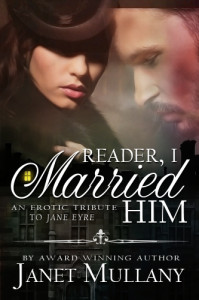 How better to start 2016 at Risky Regencies than with a cat fight? Not a real one, of course, but a literary one pitting Jane Austen against Charlotte Brontë.
How better to start 2016 at Risky Regencies than with a cat fight? Not a real one, of course, but a literary one pitting Jane Austen against Charlotte Brontë.
I just read Why Charlotte Brontë Hated Jane Austen by Susan Ostrov Weisser (Daily Beast, 10/19/2013) and, intrigued, looked around and found The Austen vs Brontë Smackdown on the blog Austen Pride (5/16/2009). I also found a long discussion of Austen vs the Brontës on Goodreads, which I skimmed, but did not read.
Apparently Charlotte Brontë had never read Jane Austen until a critic suggested she do so after she’d written Jane Eyre. She studied Pride and Prejudice and, among other things had this to say:
She ruffles her reader by nothing vehement, disturbs him with nothing profound. The passions are perfectly unknown to her: she rejects even a speaking acquaintance with that stormy sisterhood…
Austen Pride makes the point that Austen, who had passed away a year after Charlotte Brontë was born, could not rebut this accusation. In Northanger Abbey, Austen did, however, parody the emotional excesses of gothic tales, of which the Brontës’ books could be included.
Of course, those of us who love Austen would also argue that there is plenty of passion in Austen’s work, although it is brimming beneath the surface. How could you not think so of Persuasion?
Austen Pride concluded that the two authors were writing from different perspectives. Austen was writing about her keen observations of the world in which she lived; Charlotte and her sisters, on the other hand, wrote what was in their imagination.
Me, I was never a huge fan of Jane Eyre. I loved the beginning when she was in the orphanage, but I never believed in the romance between Jane and Rochester. And the coincidences of falling in a ditch and being found by her long-lost cousin didn’t work for me. I also hated how Rochester treated Jane. And don’t get me started on Wuthering Heights. Heathcliff and Cathy have to die to be together? And who would want Heathcliff anyway? I preferred Edgar to Heathcliff.
I think I hold my fictional heroes to very high standards, ones that the Rochester and Heathcliff don’t quite meet. I understand the forces driving the Brontë heroes, but I much prefer heroes I can admire and even fall in love with. Heroes like Austen creates.
I also love all the finely drawn characters in Austen’s books. Their actions and feelings are much more believable to me and that gives me the sense that I’m in a real place, among real people.
But that is me, thinking on the surface of the stories, which is mostly how I read books.
What about you? Do you prefer Austen or the Brontës? Or do you like both for different reasons?





